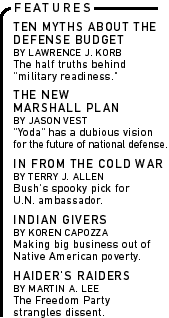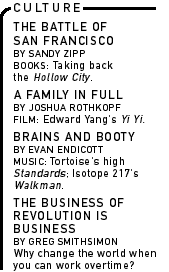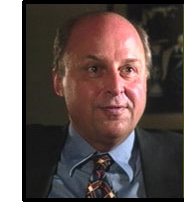

|

|

|

|
| |
|
|
|
Like spooks from an abandoned B-Movie graveyard, officials of the Reagan-Bush era are emerging from the dirt and showing up inside the George W. Bush administration. The latest resurrection is John Negroponte, whom Bush recently nominated as ambassador to the United Nations. As U.S. ambassador to Honduras from 1981 to 1985, Negroponte abetted and covered up human rights crimes. He was a zealous anti-Communist crusader in America's covert wars against the leftist Sandinista government in Nicaragua and the FMLN rebels in El Salvador. The high-level planning, money and arms for those wars flowed from Washington, but much of the on-the-ground logistics for the deployment of intelligence, arms and soldiers was run out of Honduras. U.S. military aid to Honduras jumped from $3.9 million in 1980 to $77.4 million by 1984. So crammed was the tiny country with U.S. bases and weapons that it was dubbed the USS Honduras, as if it were simply an off-shore staging ground. The captain of this ship, Negroponte was in charge of the U.S. Embassy when,
Negroponte tried to distance himself from the pattern of abuses, even after a flood of declassified documents exposed the extent of U.S. involvement with Battalion 316. In a segment of the 1998 CNN mini-series Cold War, Negroponte said that "some of the retrospective effort to try and suggest that we were supportive of, or condoned the actions of, human rights violators is really revisionistic." By the time Negroponte was appointed ambassador by President Reagan in 1981, human rights activists in Honduras were vocally denouncing abuses. Former Honduran congressman Efrain Diaz Arrivillaga pleaded with Negroponte and other U.S. officials to stop the abuses committed by the U.S.-controlled military. "Their attitude was one of tolerance and silence," Diaz told the Sun. "They needed Honduras to loan its territory more than they were concerned about innocent people being killed." Negroponte ignored such protests, and annually filed State Department reports from Honduras that gave the impression that the Honduran military respected human rights. But in an interview with In These Times, Negroponte's predecessor as ambassador, Carter appointee Jack Binns, tells a different story: "Negroponte would have had to be deliberately blind not to know about human rights violations. ... One of the things a departing ambassador does is prepare a briefing book, and one of those issues we included [in our briefing book] was how to deal with the escalation of human rights issues." Binns considered the U.S. support for Alvarez and Battalion 316 "counterproductive" to the declared objective of "establishing a rule of law." This lack of enthusiasm, Binns says, led to "my being cut out of the loop" by the Reagan administration, which he served for several months before Negroponte took over. In the summer of 1981, Binns recalls, "I was called unexpectedly to Washington by Tom Enders, the assistant secretary of state. He asked me to stop reporting human rights violations through official State Department channels and to use back channels because they were afraid of leaks." As Binns explains, back-channel messages "don't officially exist. The message is translated over CIA channels, decrypted and hand-carried from Langley, one copy only. No record." Binns did not agree to use back channels and when he returned to Honduras, he received no further reports of human rights violations from the CIA. "I was deliberately lied to," says Binns, who later found out that Reagan administration had been working behind his back. Honduras was only one of many hot spots where Negroponte served. He spent four years as a political officer in the U.S. Embassy in Saigon during the height of the Vietnam War. As an aide to then National Security Adviser Henry Kissinger at the Paris Peace Talks, he fell out of favor with his boss, wrote Mark Matthews in a 1997 article in the Sun, "by arguing that the chief U.S. negotiator was making too many concessions to the North Vietnamese." Negroponte also served in the Philippines, Panama and Mexico, where he was a strong booster for NAFTA. Rumored to have been Colin Powell's pick for the job of U.N. ambassador, Negroponte has a reputation as a loyal bureaucrat and efficient fixer. He also has a Cold War mentality characteristic of many of the old Reagan-Bush people surrounding the new president. The lessons Negroponte has learned from the past may shed light on what kind of U.N. ambassador he will be if his nomination is approved by the Senate. When he appeared in 1981 before a Senate committee for confirmation as envoy to Honduras, he said, "I believe we must do our best not to allow the tragic outcome of Indochina to be repeated in Central America." The tragedy to which he referred, of course, was the defeat of
the United States, not the devastation and death caused by U.S.
intervention.
|


